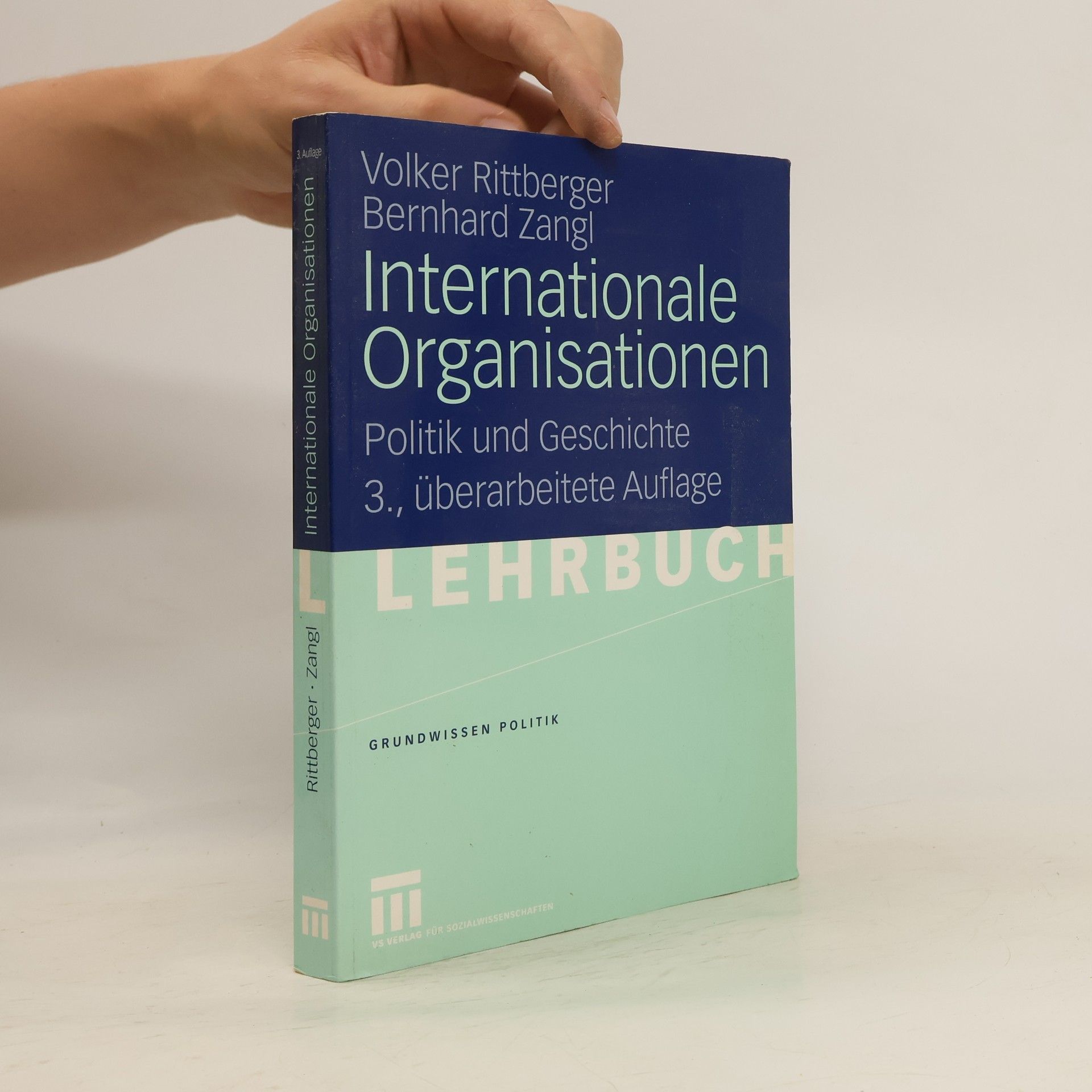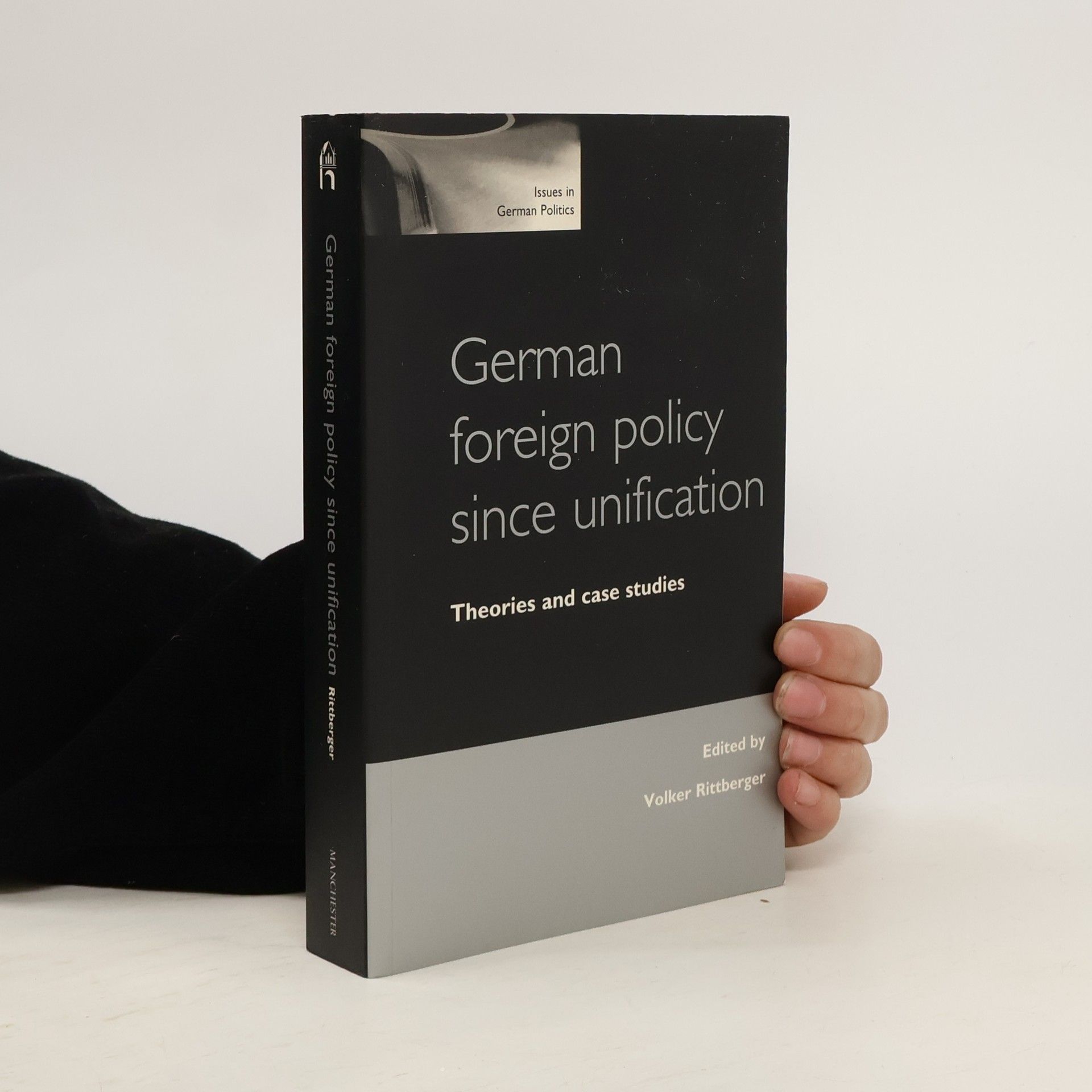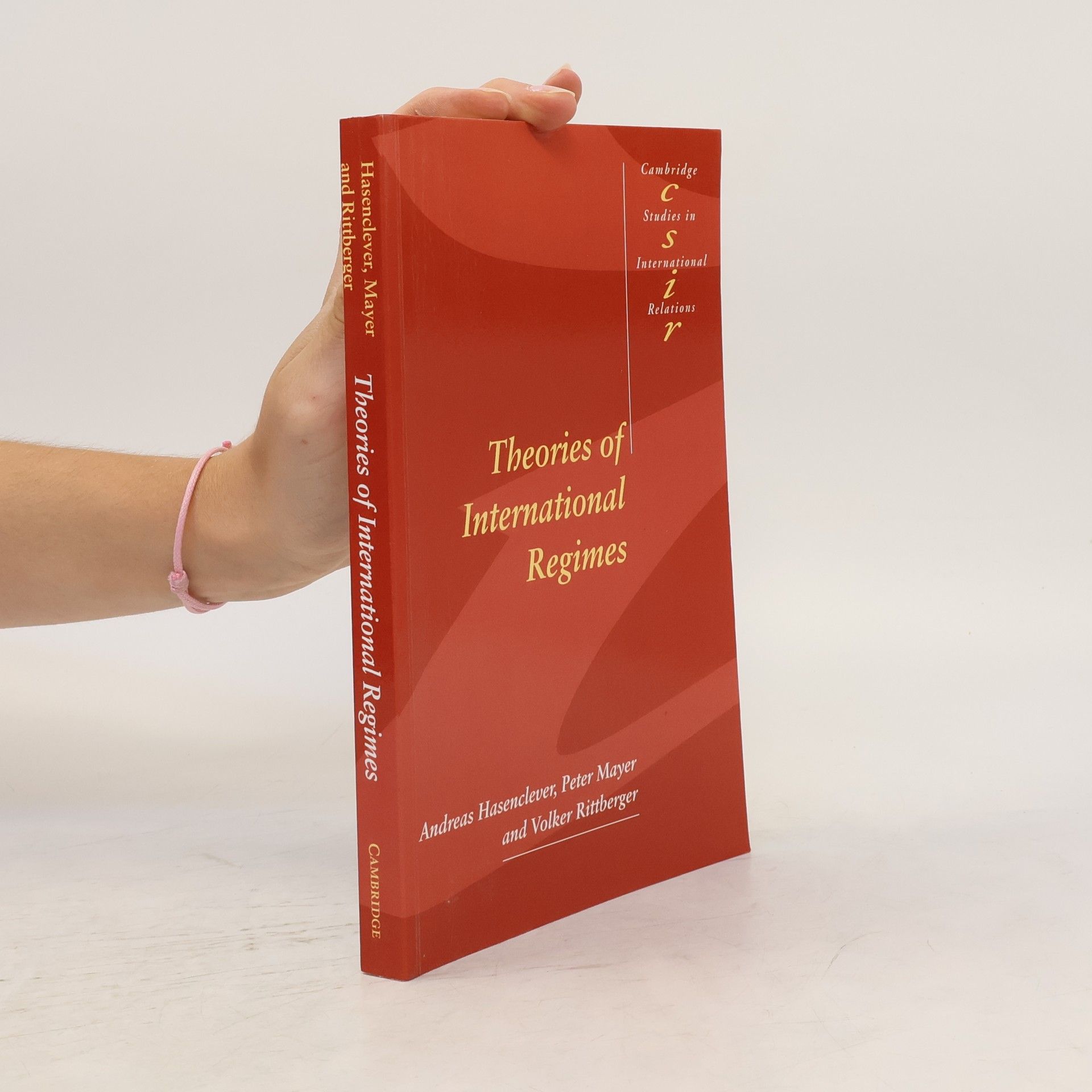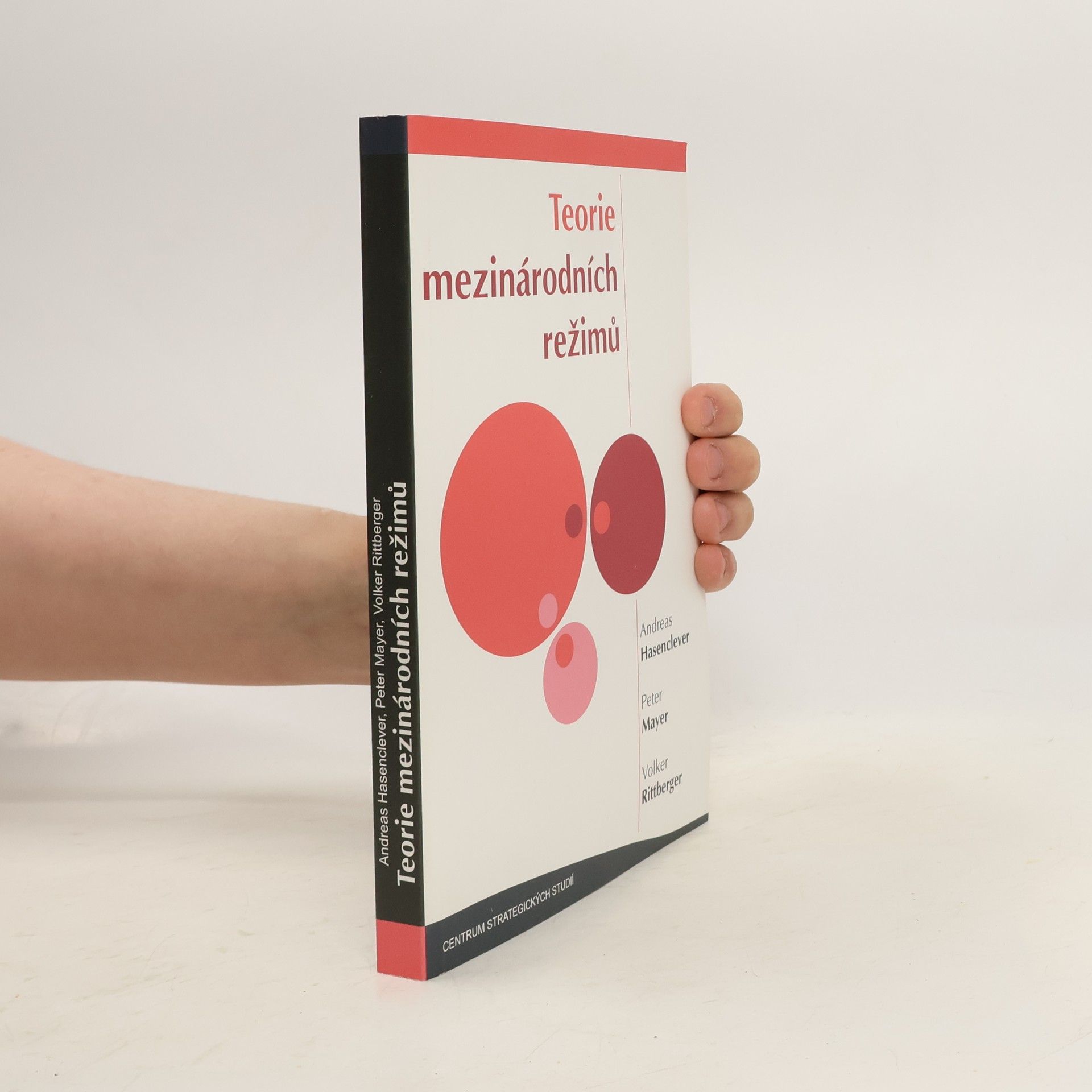International organizations such as the UN, EU and IMF play an increasingly important role in international politics. Fully revised and updated, this broad-ranging text provides a systematic theoretical and empirical introduction to the structure, policies and performance of international organizations.
Volker Rittberger Poradie kníh (chronologicky)
![1933 [Neunzehnhundertdreiunddreissig], wie die Republik der Diktatur erlag](https://rezised-images.knhbt.cz/1920x1920/56617262.jpg)





Teorie mezinárodních režimů
- 214 stránok
- 8 hodin čítania
Internationale Organisationen
- 346 stránok
- 13 hodin čítania
Das Lehrbuch führt theorieorientiert und zugleich gut verständlich in die Bedeutung internationaler Organisationen (z. B. UNO, EU, WTO, IWF) für die Weltpolitik von heute ein. Internationale Organisationen (z. B. UNO, EU, WTO, IWF, Weltbank) spielen eine zunehmend wichtige Rolle in der internationalen Politik. Das allgemeinverständliche Lehrbuch untersucht diese Rollen orientiert an politikwissenschaftlicher Theorie ebenso wie an praktisch-politischen Fragen. Dieses Lehrbuch ist darauf angelegt, theoretische Einsichten mit empirischen Beobachtungen der Politik in und durch internationale Organisationen zu verbinden und damit ein kohärentes Bild von der Bedeutung internationaler Organisationen für die internationale Politik von heute zu zeichnen. Im Zentrum des Buches stehen die Entstehungs- und Entwicklungsbedingungen internationaler Organisationen, die Politikentwicklungsprozesse in internationalen Organisationen sowie deren Beitrag zur Generierung und Stabilisierung zwischenstaatlicher Kooperation in verschiedenen Politikfeldern. Es zeigt anhand von ausgewählten Beispielen, wie internationale Organisationen die Zivilisierung der zwischenstaatlichen Beziehungen fördern.
The authors examine three different theoretical approaches to international regimes: realism, neoliberalism and cognitivism.
1933 [Neunzehnhundertdreiunddreissig], wie die Republik der Diktatur erlag
- 222 stránok
- 8 hodin čítania